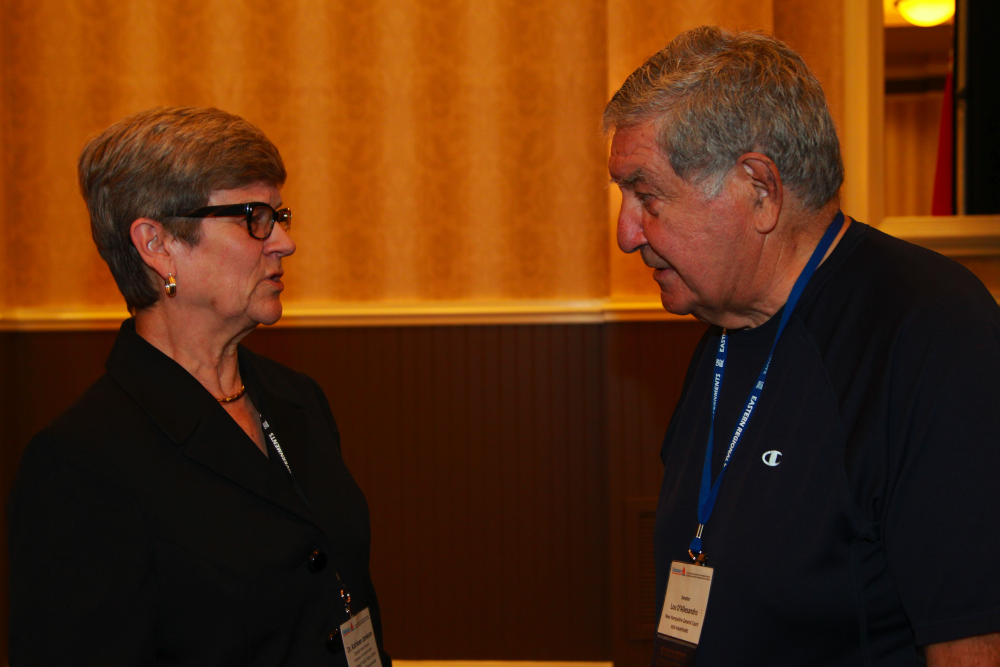Powerful advertisements have been used to attack and distort the facts in politics, policy and legislation, from the 1988 Willie Horton prison-furlough debate through this year’s Iran nuclear deal. Annenberg Public Policy Center director Kathleen Hall Jamieson examined some notable instances when that occurred during a recent talk before the 55th annual meeting and policy forum of the Council of State Governments Eastern Regional Conference.

Speaking at a plenary session of the conference in Wilmington, Del., on Aug. 18, Jamieson spoke to state legislators and policy-makers about the “Implications of the Attack on Fact in Politics,” focusing on examples when ads “hijacked the issue agenda, manipulated the contours of legislation, foreclosed desirable public policy options, or thwarted the public will.”
Among the examples: the 1988 presidential election between George H. W. Bush and Michael Dukakis, when attack ads about Dukakis’s supposed “revolving door” prison furlough policy affected state furlough policy; a tobacco ad campaign in 1998 that stalemated Congressional action on tobacco control; a 2013 ad campaign used to thwart the public desire for expanded background checks for gun purchases that foreclosed a policy option; and the 2015 debate over the Iran nuclear deal, when ads sought to disrupt and influence policy as it was being formulated.
In a follow-up talk at the Annenberg School for Communication on Aug 24, Jamieson addressed the regional conference’s Eastern Leadership Academy Fellows on “Challenges Facing the Scientific Community and Implications for Public Policy.” That address examined instances in which inadequate or unclear communication about Arctic sea ice trends, measles, and GMOs muddied the policy debate in state legislatures.

